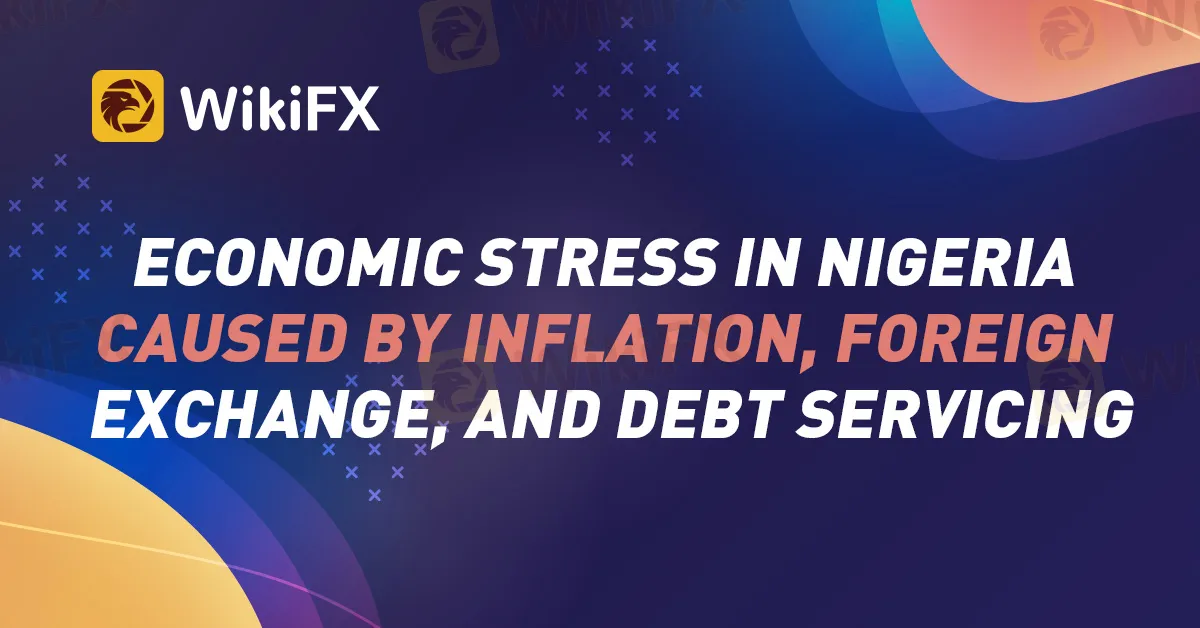简体中文
繁體中文
English
Pусский
日本語
ภาษาไทย
Tiếng Việt
Bahasa Indonesia
Español
हिन्दी
Filippiiniläinen
Français
Deutsch
Português
Türkçe
한국어
العربية
ECONOMIC STRESS IN NIGERIA CAUSED BY INFLATION, FOREIGN EXCHANGE, AND DEBT SERVICING
Abstract:According to the Lagos Chamber of Commerce and Industry, the Nigerian economy is under severe stress as a result of increased inflationary pressure, foreign exchange difficulties, debt servicing, and insufficient tax collection.

According to the Lagos Chamber of Commerce and Industry, the Nigerian economy is under severe stress as a result of increased inflationary pressure, foreign exchange difficulties, debt servicing, and insufficient tax collection.
The Nigerian economy may enter stagflation, which would have a negative impact on production costs and slow growth in the medium term, according to the Lagos Chamber of Commerce and Industry (LCCI).
The report claimed that the economy of the nation had continued to face numerous obstacles, including inflation, weak revenue growth, deteriorating infrastructure, problems with foreign exchange, an unsupportable cost profile seen in debt servicing and subsidy payments, and ominous threats of insecurity.
In a statement titled “LCCI statement on Nigeria's economic growth performance,” signed by its Director-General, Dr. Chinyere Almona, the chamber warned that even though the economy made an impressive comeback from the COVID-19 pandemic-induced recession in 2020, if these problems weren't resolved, it might slide into stagflation.
The Gross Domestic Product growth rate of 3.4% in the second quarter of 2022 was much lower than the growth rate of 5.1% in the same quarter of 2021, according to LCCI.
“However, the economy has continued to struggle with various stumbling blocks like inflation, insufficient income generation, decrepit infrastructure, FX issues, an unsustainable cost profile evident in debt services and subsidy payments, and the formidable prospects of rising insecurity,” the statement continues.
“The Chamber is afraid that if we continue on this path, the economy may bleed away into a stagflation which will affect on production costs, job losses, an exacerbated currency crisis, and slowed growth in the medium term,”
Almona further pointed out that the oil industry had seen negative growth for nine consecutive quarters, Q2 2022 by -11.8 percent y/y after a more severe contraction of -26 percent y/y in Q1.
Since the government received almost 80% of its revenue from the oil industry, she encouraged more attention and resources on combating the threat of oil theft and pipeline destruction.
According to the head of LCCI, compared to other sectors that increased at rates exceeding 5%, the 1.2 percent agriculture and the three percent growth for manufacturing were relatively low.
This was also a sign of the dangers facing the industries that fuel the real estate market in Nigeria.
The statement went on to say that the problems in these two industries were what caused the alarming increase in the inflation rate.
Many more production operations may stop in the upcoming months due to the severe cost of debt servicing, subsidy payments, and rising insecurity.
The Lagos Chamber of Commerce urged the Federal Government to continue its focused interventions in a few key industries, like as manufacturing, export infrastructure, agriculture, and combating subsidy payments.
The 2023 budget estimates suggest there would not be a sizable investment for capital projects in 2023. We implore the government to stop oil theft in order to generate more, to borrow money from less expensive sources in order to lower the cost of debt servicing, and to move gasoline subsidies.

Disclaimer:
The views in this article only represent the author's personal views, and do not constitute investment advice on this platform. This platform does not guarantee the accuracy, completeness and timeliness of the information in the article, and will not be liable for any loss caused by the use of or reliance on the information in the article.
Read more

OctaFX Back in News: ED Attaches Assets Worth INR 134 Cr in Forex Scam Case
The Enforcement Directorate (ED) in Mumbai has attached assets worth around INR 131.45 crore. This included a luxury yacht and residential properties in Spain. Read this interesting story.

Is forex trading profitable?
Many traders think that forex trading can make quick profits, but the truth is more complex. While some people do make money in the forex market, others fall prey to its many pitfalls because, in this industry, the scams and misleading promises are widespread.

Admiral Markets: A Mix of Regulation and Risk
Despite multiple licenses, Admiral Markets presents potential red flags that traders should not ignore, including a suspicious clone alert and disclosure by Malaysia’s Securities Commission.

Investing Capital in Focus as Complaints on Withdrawal and Other Issues Mount
Explore this guide we have exposed Investing Capital, which has mounted concerns for traders by disallowing withdrawals and making them lose their hard-earned money.
WikiFX Broker
Latest News
Tokenized Stocks: Innovation or Just Another Wrapper?
Gold Rush Again: What's Driving the Bullion Market Crazy Ahead of US Jobs Data?
XTB Launches Tax-Advantaged Retirement Accounts in Poland
Zaffex Broker Review
ECB Ends Easing Cycle, But The Eurozone Crisis Is Just Beginning
Amazon deploys its 1 millionth robot in a sign of more job automation
MT4 and MT5 Platforms - Helping Traders Up Their Forex Trading Game
A bare-bones deal is Europe's best hope in trade talks with the U.S., sources say
10-year Treasury yield remains higher despite weak ADP jobs report
Blueberry Markets Revamps its Website
Currency Calculator


